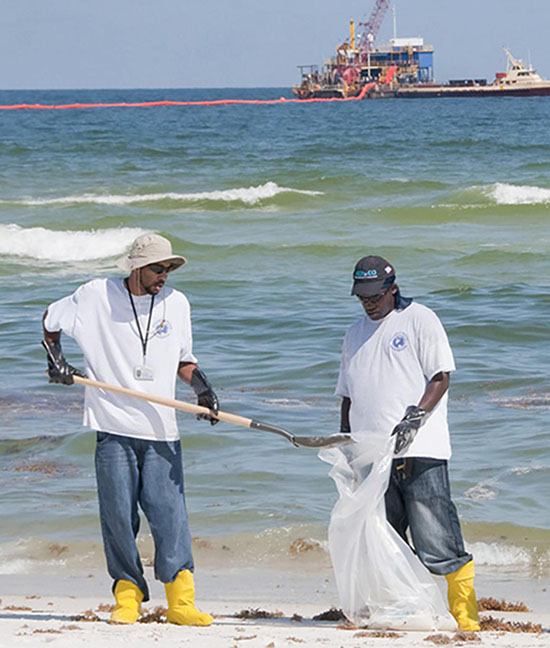Oil spill cleanup workers more likely to have asthma symptoms
NIH study finds chemicals from Deepwater Horizon disaster associated with more wheeze
Researchers from the Gulf Long-term Follow-up Study (GuLF STUDY) found that workers involved in cleaning up the nation’s largest oil spill were 60% more likely than those who did not work on the cleanup to be diagnosed with asthma or experience asthma symptoms one to three years after the spill.
This ongoing study, led by the National Institute of Environmental Health Sciences (NIEHS), part of the National Institutes of Health, is the largest study to look at the health of workers who responded to the 2010 Deepwater Horizon oil spill in the Gulf of Mexico.
“This is the first study to ever look at specific chemicals from oil spills and link them to respiratory diseases,” said Dale Sandler, Ph.D., chief of the NIEHS Epidemiology Branch and lead researcher for the GuLF STUDY. “If you were an oil spill cleanup worker in the gulf experiencing wheezing or other asthma-like symptoms, it would be good to let your healthcare provider know you worked on the oil spill.”

The GuLF STUDY found that workers involved in cleaning up the nation’s largest oil spill were twice as likely to be diagnosed with asthma or experience asthma symptoms one to three years after the spill than non-workers.
This page was last updated on Wednesday, August 24, 2022